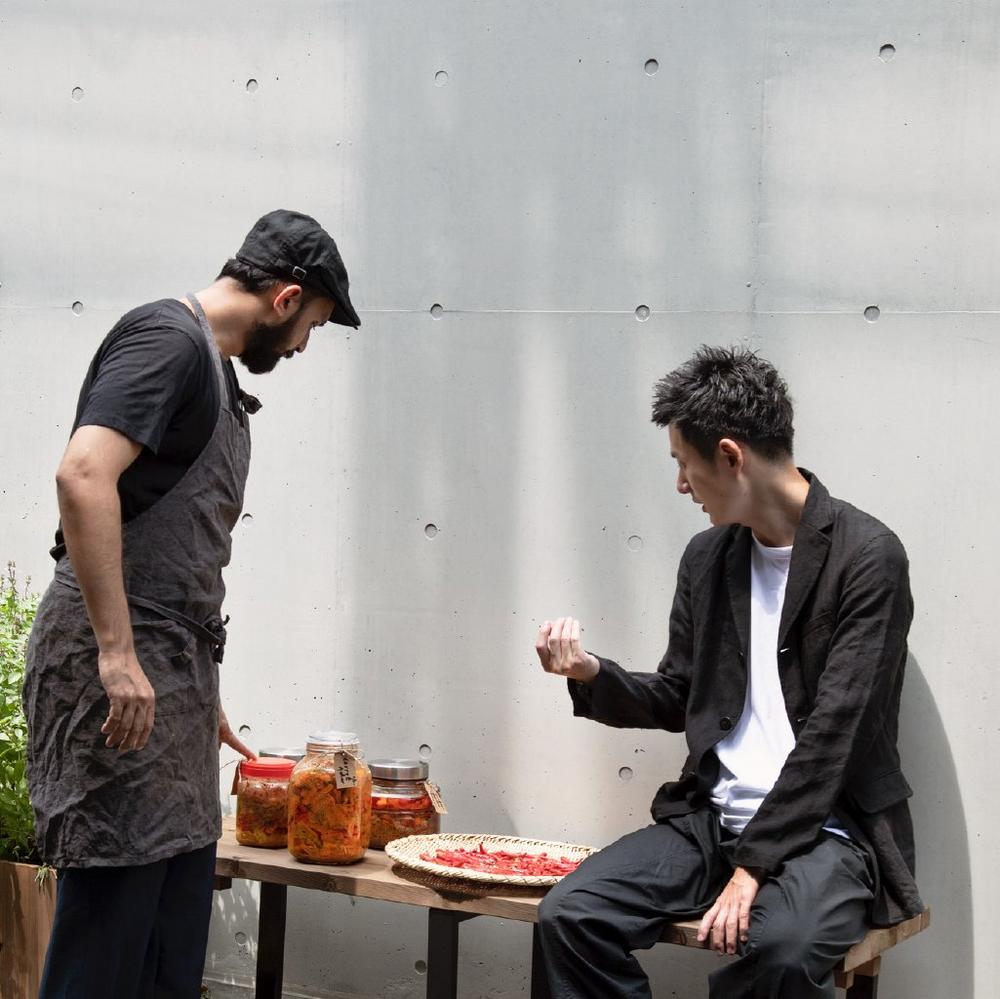
Local Relevance
At Market Street Hotel in Edinburgh, guests are “immediately connected to the heritage of the city”, Original Christa van Camp says. Indeed, behind the Scottish-stone façade are interiors inspired by the city’s character and history, as well as the property’s distinct location at the meeting point of the Old Town and New Town. Textured walls are juxtaposed with minimal lines, and bursts of traditional tartan fabrics are found in unexpected places. The history of place is also reflected at Hotel Pacai in Vilnius, which is housed within a 17th-century Baroque mansion. Formerly home to the noble Pacai family, the structure has been renovated with traditional materials like clay, tin, stone, and original barn wood, but it is also given a contemporary twist through the addition of a new building in the inner yard.
In Athens, Perianth Hotel is also rooted in its building’s history: The structure was built in the 1930s, and the interior design was inspired by the modernist movement of the same era. The results include terrazzo floors, marble furniture elements, and glass-brick walls. Furthermore, the hotel is also home to the Zen Center Athens, an institution for both guests and the local community that is dedicated to meditation, martial arts, yoga, and Eastern philosophy. Elsewhere, Palma’s Concepció by Nobis reflects both the sights and tastes of Mallorca. The lush green hues of the island’s Tramuntana mountains help define the hotel’s color scheme, while local materials, including custom Huget tiles, serve as leitmotifs throughout the property. At the onsite restaurant, Xalest, Mallorca native Chef Xemas Álvarez also brings together island-specific food culture and Spanish dining traditions.
Melding seamlessly with the city’s ebb and flow, Art House Basel is nestled in Basel’s central Steinenvorstadt neighborhood. Steps away are the Museum of Cultures, the three branches of the Kunstmuseum Basel, with works from Old Masters to contemporary art, as well as numerous galleries and boutiques. Moreover, the property itself showcases urban art through permanent installations and rotating exhibitions, hosted in partnership with Colab Gallery from Weil am Rhein. Likewise, a central location and visual art also connect StandArt Hotel Moscow to its surroundings. The country’s art scene is reflected through artworks created by sought-after Russian artist Stanislav Tratsevskiy specifically for the hotel’s public spaces and guestrooms, while major museums, business centers, and sites like the Kremlin are all within a 10-minute walk.
Patina Maldives connects to its location in the Fari Islands of the North Malé Atoll through sustainable and community-oriented practices. The resort’s various dining options feature organic produce grown on-island and all off-island ingredients are accredited by EarthCheck or the International Pole and Line Foundation, with local provenance a clear priority. All drinking water is produced and bottled in glassware at an on-island facility, and much of the resort’s energy is sourced from solar panels. Additionally, of the four Fari Islands, one is dedicated to Fari Campus, an impressive complex with private and public living, socializing, and learning spaces for staff. Here, the aim is to cultivate relationships and nurture both personal and professional growth.
Design Hotels™ represents and markets a curated selection of over 300 independent hotels in more than 60 countries across the globe. More than a collection of hotels, the company is a collection of stories. Each property reflects the ideas of a visionary hotelier, an "Original", someone with a passion for genuine hospitality, cultural authenticity, thought-provoking design and architecture. Each "Original" stands for the individual, aesthetic and service-driven experience that his or her hotel provides.
In 2017, Design Hotels™ launched Further, a traveling laboratory for experiential hospitality that transforms hotels across the globe into temporal hubs of thematic exploration. The mission behind Further aligns with the values of the future-facing Promad, a new generation of traveler embracing progressive travel and global nomadism. First identified by Design Hotels™ in collaboration with leading futures consultancy The Future Laboratory, the purpose-driven, self-actualizing Promadic movement is set to shape the future of hospitality.
Founded by Claus Sendlinger in 1993, Design Hotels™ offers its members insightful travel industry knowledge, from market trend consultancy to international sales representation. The company has its headquarters in Berlin and branches in London, Los Angeles, New York and Singapore. In 2019, Design Hotels™ joined forces with Marriott Bonvoy, enabling its member hotels to have both a greater and more selective reach while offering its Community the benefit of the industry’s leading loyalty program.
design hotels AG
Stralauer Allee 2c
10245 Berlin
Telefon: +49 (30) 884940-000
Telefax: +49 (30) 257698-96
http://www.designhotels.com
![]()




